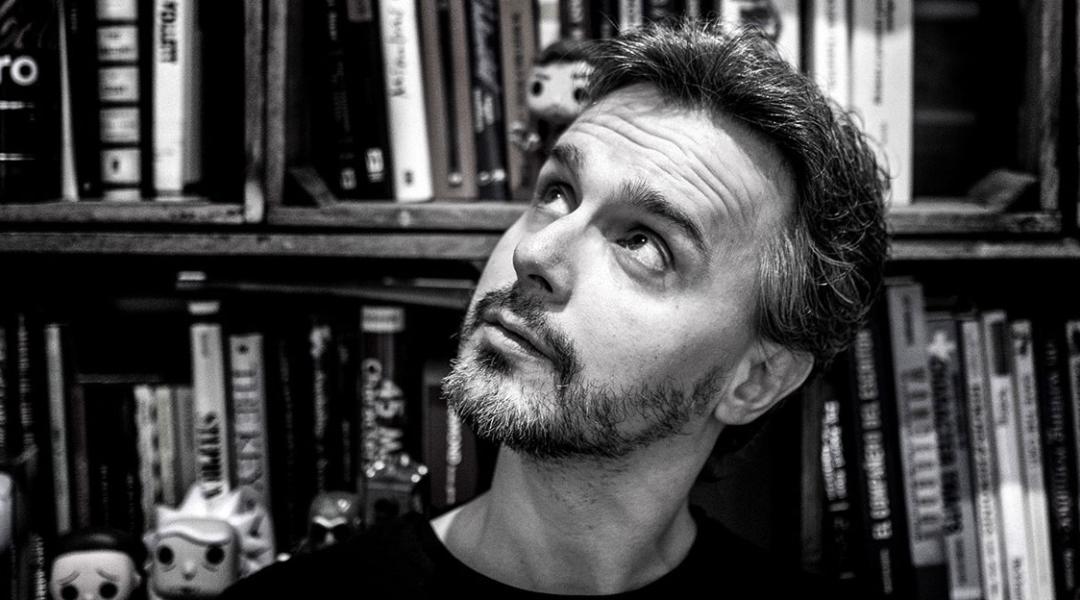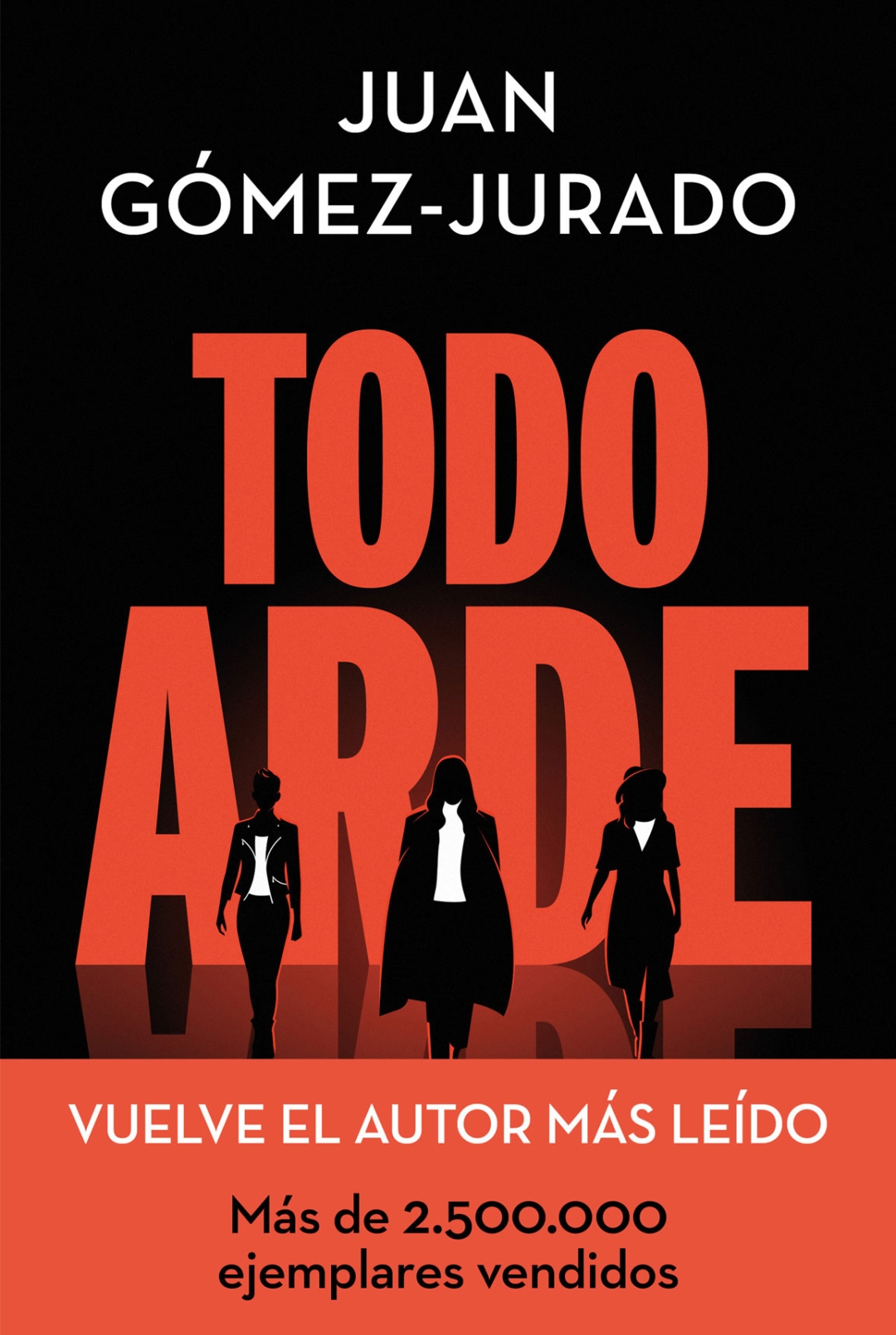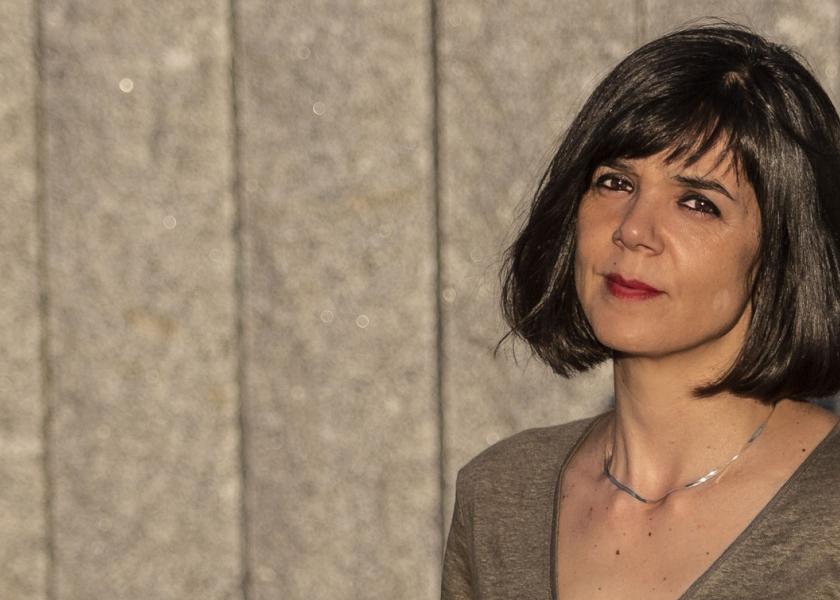Juan Gómez-Jurado
Keeping the reader in suspense

Since his debut as a novelist in 2006 with 'God’s Spy', Juan Gómez-Jurado has woven his own universe where, chapter by chapter, his thrillers leave readers breathless. And his audience love him for it. In fact, he’s become one of the best-selling authors in Spain. He’s back with ‘Todo Arde’, a novel featuring three fearless women, Aura, Mari Paz and Sere.
Three women realise that the only way to survive is by doing something crazy. “They’re women that have lost everything, even fear. That’s why they’re so dangerous.” With this starting premise, journalist and writer Juan Gómez-Jurado (Madrid, 1977) has surpassed all expectations again with Todo Arde. Titles like La leyenda del ladrón, The Tipping Point/Point of Balance or Cicatriz were the prelude to what would become one of the greatest editorial successes in recent years: the Red Queen trilogy. Its adaptation by director Koldo Serra promises to take TV by storm. Gómez-Jurado’s best-selling sales figures are off the charts: more than ten million books sold worldwide. Proof that combining talent and a good nose for business is possible.
Is a successful writer born or made? How do you remember your childhood?
I wasn’t a gifted child, but they did try to get me into other things beyond books. Others who also enjoy reading have had similar experiences. It’s something I have in common with other colleagues I’ve met along the way. I fell in love with reading and, when you succumb to it, it turns into the only path forward.
Did you take shelter in literature?
Fictional places, like Middle-earth or Hogwarts —where there are orcs or wizards—, make sense. They’ve also been created so that life there is more dangerous and also more attractive. However, we can’t always find that sense in real life. So, paradoxically, seeking refuge in fantasy means doing so against the nonsense or absolute chaos of real life.
“When I write I don’t find shelter, but a prison sentence. But the fact that I hate writing has made me a better writer”
How do you feel when a child tells you they want to become a writer because of your books?
What gives humans meaning is our ability to tell stories, finding a purpose through words. So, when a kid comes up to me and tells me: “I want to do what you do when I grow up,” it makes me feel that all is not lost. In the end, our efforts are inherited by younger generations.
How do you write a bestseller? Is it a question of talent?
I came to writing because of my love for reading, but to me writing is a chore. I’d love for the story that’s in my mind to come out by itself! What you visualise and what you’re able to write are two different things, and that’s what I struggle with the most. Really, when I write I don’t find shelter, but a prison sentence. But the fact that I hate writing has made me a better writer. The need to distract myself leads me to tell different stories, so I never write the same book twice.

Cover of ‘Todo Arde’, the latest book by writer Juan Gómez-Jurado. © Penguin Random House
So, what’s the hardest part about writing?
When I sit down to write a novel, I take lots of things into consideration. But, above all, what’s the story and how do I tell it? I need to reflect on the form. A thriller is basically an adrenaline rush to solve a problem. And, depending on the paths that resolution follows, you have an adventure or a psychological thriller. My work consists of finding those paths and I’ve often had to use formulas, codes or techniques that aren’t usually included in a regular thriller. Not even the novels that make up the Red Queen trilogy [followed by Loba Negra and Rey Blanco] follow the same structure, each has a different one, when making them follow a similar narrative would’ve been the norm.
In your latest novel, Todo Arde, you suddenly break up the narrative by writing a chapter as if it were a film script.
The other day, someone who didn’t enjoy that chapter told me: “Juan, you’re becoming increasingly obsessed with films. You’ve done it so that they’ll make a film or TV series out of it.” I smiled; it didn’t bother me. I have a really good relationship with my readers and receiving constructive criticism every now and then is good for me. What I thought at the time is how easy it is to make that comparison and how hard it genuinely is to turn a narrative into a film script.
Soon, Red Queen will take the leap on-screen; tell us how film has influenced the way you write.
I’m a man of the times and writing with certain codes connected to film is inevitable. For example, when I read the beginning of Fortunata y Jacinta, by Benito Pérez Galdós, I decode it as cinematic travelling because there’s a difference of 130 years.
“Writing is, above all, thinking back: remembering stories and bringing them back to the present somehow”
Did your writing style make it easier for scriptwriters to adapt Red Queen to an audiovisual format?
At the time, I spoke to the screenwriters of Red Queen about it. “If I write really visually, it must be easier for you to turn this into a script,” I told them. They stared at me and replied: “No, precisely for that reason it’s really difficult. If you’ve already created imagery, we either recreate it perfectly, or people won’t recognise the novel.” Really I was making it all much harder for them. I’ve learnt a lot with the series, where I’ve had the best teachers. Now is the next phase: turning everything that’s been filmed, with a lot of postproduction, into a story that lives up to the saga’s protagonist, Antonia Scott.
How do you create the characters from your novels? Are they based on real people?
All the characters in my books are related to me and come from the real world. Sometimes I’ve had to describe my relationship with them by saying: “All my characters are me, and I am all my characters.” One day, in Puerta del Sol, I encountered a legionary veteran who had a radio and a bag with three apples and a potato hanging from his walker. Four beautiful characters in Todo Arde were born from this casual encounter. If I hadn’t experienced it, would they have existed? Writing is, above all, thinking back: remembering stories and bringing them back to the present somehow.


